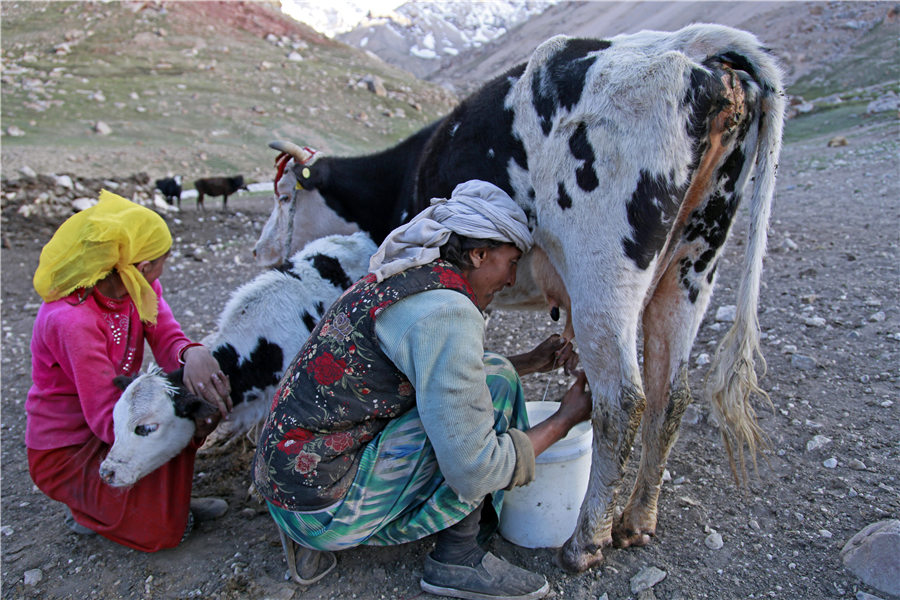Living amid the mountains
Updated: 2015-03-06 11:41
By Cui Jia in Urumqi(China Daily USA)
 |
|
Two Tajik women milk a cow in June 2013. The milk from cows and sheep are daily wnecessities for the Tajik ethnic group. |
According to Tajik tradition, no one is allowed into the house if there is no man inside. Wang said he had to wait for Arimaner to return from the mountains before he could enter the traditional Tajik house.
One of Arimaner's daughters is named Gulaxiami, which means beautiful flower in the Tajik language. The 4-year-old normally stays with her mother and younger sisters in the house or plays outside on the grassland surrounded by snow-capped mountains.
Like all Tajik children living in the pastures of the Pamir Plateau, she will go to boarding school in the county seat and receive free education. But for now, she continues to play with her best friends -- the family's shepherd dogs. There are few children who can play with her in the isolated area.
Sometimes, Gulaxiami also helps to prepare family meals. Meat, nang (a round, baked flatbread) and dairy products such as yogurt are essential foods for Tajiks, who believe those who step on salt or grain are sinners.
Kissing is an important gesture for them. When two men around the same age meet they will greet each other by kissing the back of the hand of the other person. When a young woman meets an elderly man, she will kiss the palm of the man.
The Tajiks never lock their doors at night because there is no stealing. If someone drops something on the vast grassland, a Tajik can wait for hours for the owner to return or put the item on a pile of stones so that it can be easily spotted from a distance.
"Tajiks are the most honest people I have ever met and I have learnt so much from them," Wang said. "Although their life is harsh and they don't have a lot of money, they are a lot happier than most people in the big cities because they are not greedy. They are grateful for what nature gives them."
cuijia@chinadaily.com.cn